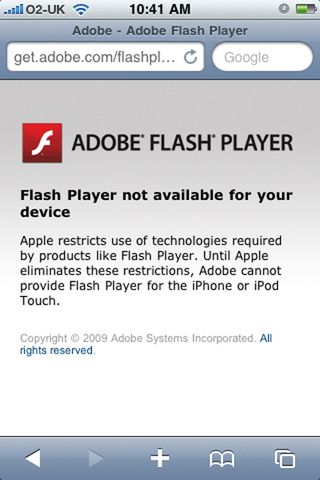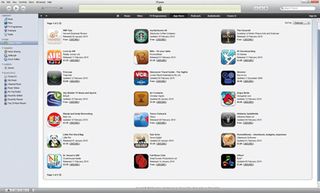Is the iPad Apple's greatest folly?
Why Apple's tablet could struggle to live up to the hype
Of course, Apple is in the rather enviable position of being a successful software vendor as well as purveyor of fruit-branded hardware. And it's actually on the software side that the iPad could have its greatest impact.
Apple's decision to furnish the iPad with a tweaked version of its iPhone OS (version 3.2 for those that count such things) is both limiting, and incredibly empowering, as it means it can tap into the huge existing application base developed for the iPhone and iPod Touch. Releasing a new device that can call on the support of 140,000 applications, no matter how trivial or useless, is something every manufacturer would love to be in a position to do.
There is a difference in the resolutions offered by the two devices (the iPhone/iPod Touch has a resolution of 320 x 480), but the application in question can be expanded to fit the higher resolution screen, or kept at its original size. This latter option probably isn't the greatest demonstration of the iPads power, and a lot of applications are going to look – well, awful.
They're available though, and in lieu of a normal operating system, it's better than relying on Apple to produce every single application you could want. Intriguingly, developers apparently produce a single executable that contains code for both the iPad and iPhone/iPod Touch, leading to a bloated file for iPhone users if higher resolution textures and features are included to make the most out of the iPad's size.
This could obviously change over time, leading to apps being specifically written for the iPad or iPhone, but we can see why Apple is actively trying to unify the code across the family. This could lead to a situation though, where the true power of the iPad isn't really tapped into for a long time.
The App Store is clearly a major revenue stream for Apple though, as this is where it controls what does and doesn't go onto its hardware.

It's also been cited as one of the reasons why Apple won't support Flash or Java in the iPhone OS, because there are so many free Java/Flash-based applications out there that would undermine those applications sold in the App Store. The very fact that the iPad has a dedicated YouTube app shows the way that Apple wants to go with this.
Get daily insight, inspiration and deals in your inbox
Get the hottest deals available in your inbox plus news, reviews, opinion, analysis and more from the TechRadar team.
Reading matter
The key moment of the iPad launch was the announcement of iBooks; Apples new app that supports the reading and purchasing of electronic books. Could iBooks legitimise the electronic book format in the same way that iTunes did with music? We'll happily give Apple a nod of respect if it manages this feat.
Of course, in order to do well, the iPad needs to provide a compelling user experience while reading books, but it's here the general-purpose nature of the iPad will probably undermine it as a means for reading books. Compare an iPad with hardware designed specifically for the task of reading electronic books, and the iPad doesn't come out that well.
Amazon's Kindle 2 is more affordable and a far more book friendly piece of kit. While it may lack full colour glossy covers of iBooks, its electronic ink display is far easier on the eye than any backlit LCD screen. This is also why the Kindle 2 boasts battery life closer to a week rather than the iPad's ten hours – and that's a figure quoted from Apple, so you can expect it to run down quicker in the real world.
Indeed, while we wish the Apple iBooks store well, we can't help feeling that it's the wealth of electronic book readers already out there that will matter here, not the iPad. By trying to be so many things to so many people, the iPad loses its appeal as being a specialist device in one particular area; the modern day jack of all trades as it were.

And while you could say the same about the hugely successful iPhone, it's the portability of that device that makes it so special; having it anchored to your living room really isn't as appealing a concept.
Will the iPad be a success for Apple? Or just another modern day Newton? Apple has so much momentum in the market right now that it will certainly have its fans, and there will be enough of those early adopters to start the iPad ball rolling. But, the fact that it doesn't have a standard OS, or the flexibility of a normal computer will ultimately undermine how and where it can be used.
If we were given the choice of an iPad, an iPhone or a good laptop, we know what we'd want to use on a regular basis, and it doesn't necessarily start with a lower case 'i'.
